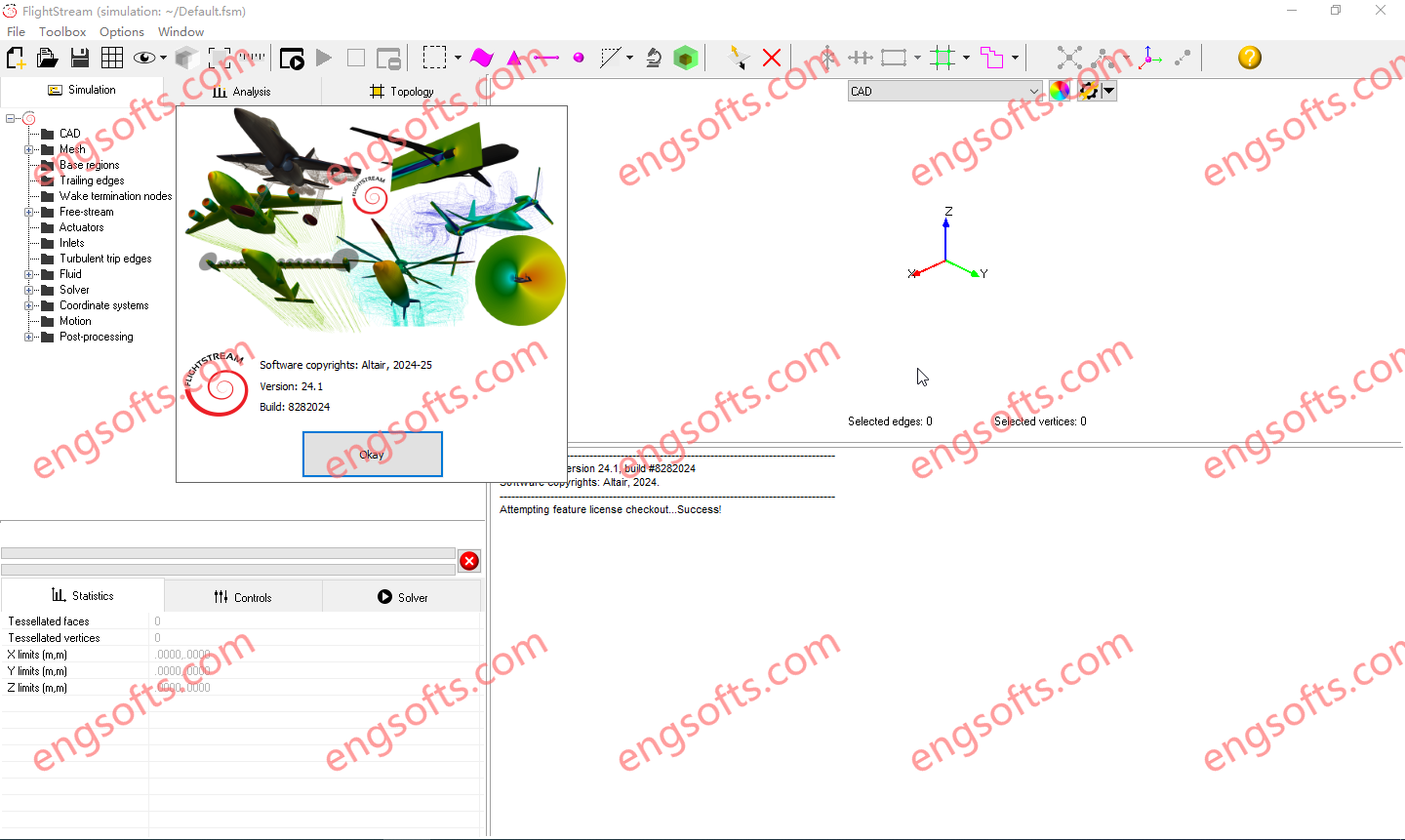Altair FlightStream is a revolutionary aerodynamics tool that merges panel methods with modern computational techniques, delivering rapid solutions for a range of aerodynamic applications. Its unique surface vorticity, compressible flow, and viscous capabilities excel in powered and unpowered configurations. Integrated seamlessly with Altair’s pre- and post-processing tools, FlightStream bridges the gap between high-fidelity CFD simulations and engineering demands.
Featuring an intuitive GUI and unstructured surface-mesh solver, it minimizes complexity and time compared to traditional CFD solvers, ideal for a variety of vehicles from subsonic to hypersonic. FlightStream sets a new standard for efficiency and accuracy, providing invaluable insights into aircraft performance within a compact, intuitive solution.

Altair FlightStream 2024 v24.1 Tested Picture
Key Features
Panel Methods, Reimagined
FlightStream leverages the strengths of panel methods, enhancing them with modern computational techniques to provide a solver that’s both fast and capable of handling complex geometry configurations.
Automation Scripts and Wrappers
Automate tasks in FlightStream to provide a more intuitive, more efficient user experience that’s perfectly suited to your organization’s unique requirements.
Modernized GUI
FlightStream is equipped with unique point-and-click capabilities for problem set up and pre- and post- processing tools that allow real-time case visualization.
Toolbox Solutions
Included with FlightStream are toolboxes such as Solver Sweeper, Stability & Control, and API scripting to provide powerful batch process capabilities to rapidly estimate aircraft performance.
Aeroacoustics
Features a fully integrated aeroacoustics toolbox implemented under a NASA-funded STTR activity capable of modeling both tonal and broadband noise components of UAM propellers, rotors, and flexible structures.
Time-Accurate Aerodynamics
Model complex stacked motion types. This allows for modeling vehicle motions such as VTOL transitions, helicopter rotor cyclic and collective motions, advanced flap-track motions, and vehicle maneuvers with control effector actions.
Control Surfaces
Capable of modeling control surfaces in all levels of geometric fidelity, from faired, to gapped, to multi-flap systems. Readily simulate control surface motion for trimming, S&C, and other analyses.
Internal Flows and Ducts
Model the intricate internal flow in detail to compute the total pressure losses and viscous effects. You can even model solid rocket motor internal flows.
Viscous Coupling
Fully viscous-coupled non-linear flow solver that allows the accurate physics-based capture of boundary layer flow and its impact on vehicle aerodynamics.

